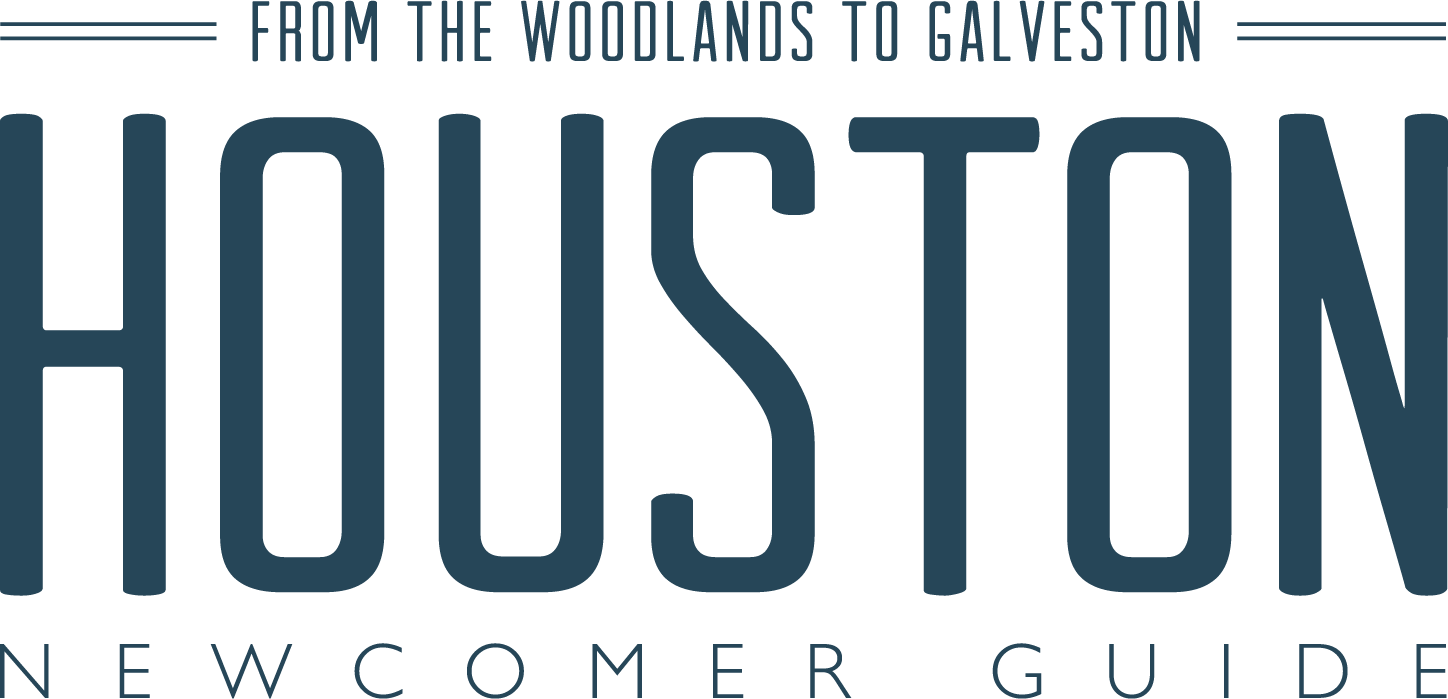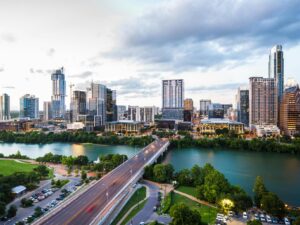If you are asking yourself, Should I move to Houston – the answer is – If you want big-city opportunity with lower housing costs, no state income tax, world-class healthcare, and a truly diverse community—and you can handle heat, traffic, and flood preparedness? It is a smart move.
Quick Take: Pros & Cons
Why people move here
- More home for your money vs. many large metros.
- No state income tax (be sure to factor property & sales taxes).
- Jobs across energy, healthcare, aerospace, logistics, and tech services.
- Texas Medical Center = one of the largest medical complexes in the world.
- One of the nation’s most diverse big cities—you’ll find your people.
Trade-offs to plan for
- Heat + hurricanes mean higher A/C bills and the need for flood awareness.
- Driving is common; commutes can be long without careful neighborhood choice.
- Property taxes & insurance can offset income-tax savings (varies by neighborhood).
Is Houston Affordable Right Now?
Should I Move to Houston? Insights for Newcomers
Yes—relative to other major metros.
- Buying: Median single-family prices are typically mid-$300Ks, with inventory levels that give buyers options and negotiating room. Check the latest Houston Association of REALTORS® (HAR) monthly market update for current medians and months of inventory.
- Renting: Citywide median rent tends to track below national averages, with 1-bedroom and 2-bedroom medians staying relatively stable year-over-year. See current Apartment List or Zillow market snapshots for the latest month.
Taxes to expect (high level):
- State income tax: None.
- Sales tax: State 6.25% + local add-ons (Houston typically up to 8.25% total).
- Property tax: Varies by county/city/ISD; run the full monthly payment (mortgage or rent + property tax + insurance + utilities).
How’s the Job Market?
Houston is big and diversified—energy (traditional & low-carbon), healthcare/biotech, port & logistics, space/aerospace, manufacturing, and tech services.
- Total regional employment: Approximately 3.5M and growing across multiple sectors (Greater Houston Partnership economic updates).
- Healthcare: Hundreds of thousands of jobs and expanding—TMC anchors care, research, and biotech.
- Unemployment: Generally tracks near national averages; check the latest BLS release for the current month.
What Are the Best Areas for Newcomers?
It depends on commute, budget, and lifestyle:
- Inside the Loop (urban/walkable pockets): Montrose, Heights, Midtown, Museum District, Rice/Med Center (condos/townhomes, shorter commutes, higher rents).
- Close-in suburbs with top amenities/schools: Katy, The Woodlands, Sugar Land, Pearland, Clear Lake (NASA/space), Cypress.
- Pro tip: Map your daily routes; the greater Houston area is huge and average one-way commutes often hover around 30 minutes.
Is There Really No Zoning?
Correct (mostly). Houston is the largest U.S. city without a traditional, citywide zoning code—development is guided by other ordinances, plats, deed restrictions, and special districts. This flexibility helps housing supply but creates block-by-block variability.
Translation for newcomers: You can often live near work + restaurants at lower cost—just study deed restrictions and nearby land uses before you buy or lease.
How Bad Is the Traffic?
It’s a drive-first metro. Plan smart and it’s manageable.
- Typical commute: ~30–31 minutes (regional average).
- Downtown trips have rebounded post-pandemic, pushing congestion at peaks.
Tips
- Live near work or along METRORail/BRT where feasible.
- Stagger hours; leverage toll/HOV options.
- Try a reverse-commute suburb aligned with your employer hub.
What About Weather, Floods, and Insurance?
Heat & humidity: Summers are long; A/C is not optional.
Hurricanes & flooding: Use FEMA + City flood resources. Updated Harris County flood maps are expected in the next cycle, so today’s risk zones may understate exposure. Flood insurance is strongly recommended (and often required by lenders in high-risk zones).
Action steps
- Check FEMA + local flood maps before you buy/lease.
- Ask for elevation certificates, prior claims, and drainage updates.
- Price home + flood insurance early in your home search.
How Strong Is Healthcare & Science?
Texas Medical Center (TMC): the largest medical complex of its kind—over 100,000+ employees and millions of annual patient encounters across hospitals and research institutions. If access to top care matters, Houston is elite.
Is Houston Actually Diverse?
Yes—one of America’s most diverse major cities, year after year. That shows up in food, festivals, faith communities, languages, and neighborhoods—a big win for newcomers seeking community.
Will I Save Money Without State Income Tax?
Often, yes, especially for higher earners. But run the full math:
- Income tax: 0% state.
- Sales tax: Up to 8.25% combined in Houston.
- Property taxes: Can be higher than national averages; compare effective rates by county/ISD and consider homestead exemptions.
FAQ
Is Houston cheaper than Dallas or Austin?
Generally cheaper than Austin on both home prices and rent; pricing vs. DFW depends on the submarket. For current month medians, check HAR (for sales) and Apartment List or Zillow (for rents).
What salary do I need to live comfortably?
It depends on household size and loans. Cost-of-living analyses consistently place Houston on the more affordable end among big metros. Build a budget that includes mortgage (or rent), property tax, insurance, utilities, commuting, and childcare if applicable.
Is public transit viable?
Limited compared with NYC/Chicago, but METRORail, Park & Ride, and BRT can work if you choose along specific corridors. Most residents still drive.
Is Houston safe?
Safety varies by neighborhood and time of day—check local crime dashboards and talk to neighbors/HOAs. Do hyper-local due diligence before you sign a lease or buy.
Bottom Line: Should You Move to Houston?
Choose Houston if you want:
- Career mobility in energy, healthcare, logistics/port, and space.
- More square footage or a yard for your budget.
- A culturally rich, diverse city where newcomers plug in fast.
Make the move carefully if you:
- Won’t tolerate heat/humidity or car-centric living.
- Aren’t prepared to evaluate flood risk and insurance upfront.
Newcomer’s Checklist (Save this)
- Pick your commute first. Aim for <30 minutes one way.
- Run total housing cost: Mortgage/rent + property tax + insurance + utilities.
- Verify flood & wind risk (FEMA + City maps; ask for an elevation certificate).
- Price insurance (home, flood, auto) before you sign.
- Model taxes: 0% state income tax vs. 8.25% sales tax and local property tax.
- Tour at rush hour and after heavy rain.
- If schools matter, compare districts/charters before choosing a lease or lot.
Helpful resources for Newcomers
- Housing & inventory: Houston Association of REALTORS® (HAR) monthly market update.
- Rents: Apartment List / Zillow monthly rent reports for Houston.
- Jobs & unemployment: BLS (Houston-The Woodlands-Sugar Land, TX MSA).
- Healthcare scale: Texas Medical Center institutional overview.
- Taxes: Texas Comptroller (state sales tax + local add-ons).
- Flood risk: FEMA Flood Map Service Center + City of Houston Floodplain Management Office.
- Commute averages: U.S. Census ACS / regional transportation summaries.
- Diversity rankings: National studies comparing diversity across large U.S. metros.
If the answer to Should I move to Houston? is YES – request your FREE copy of the Houston Newcomer Guide, and start planning your move!




